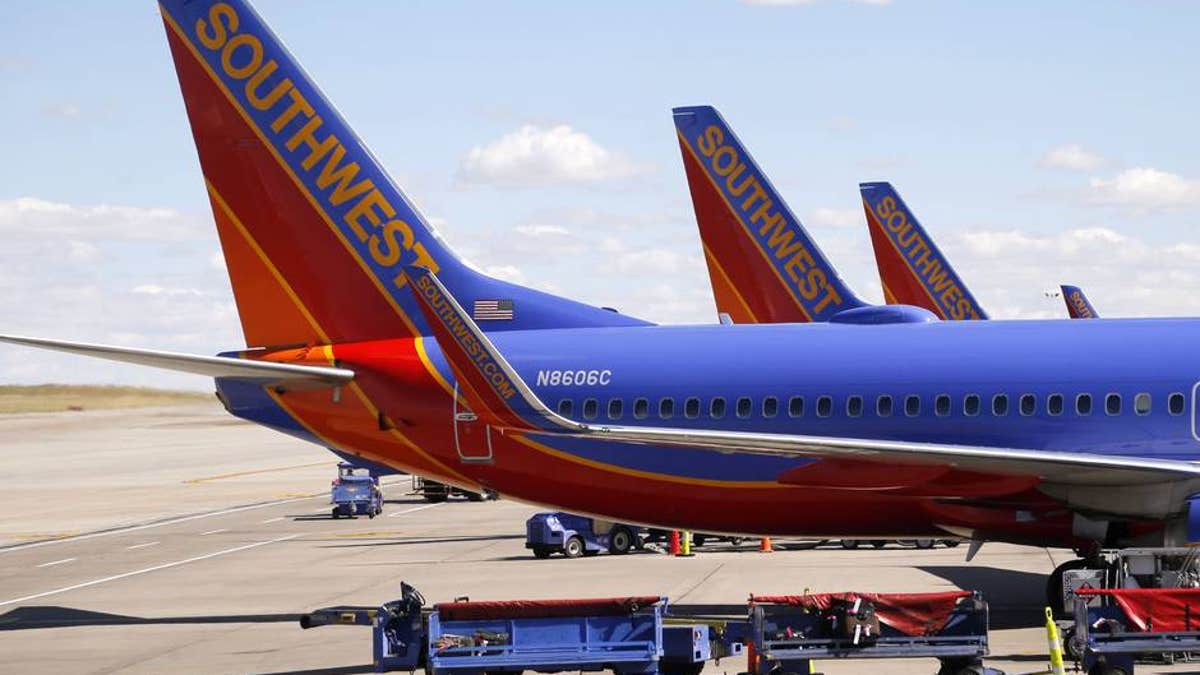
The Dallas-based carrier is facing several fines over maintenance issues. (AP Photo)
On Tuesday, the Federal Aviation Administration said it would be fining Southwest Airlines over $300,000 in penalties, citing two alleged violations of federal aviation regulations that occurred in 2013.
According to the Dallas Morning News, in the first case, an airplane lost cabin pressure during a flight, which the FAA said was a direct result of Southwest mechanics failing to do a mandatory inspection for damage to ensure depleted oxygen bottles had been replaced. The FAA is proposing a $265,800 penalty for incident.
In the second instance, AirTrain Airways, which is owned by Southwest, knowingly operated a Boeing 717 that suffered leaks due to a malfunctioning air conditioner unit. The FAA alleged that the mechanics not only deferred repairs on the leak but also failed to record the problem adequately in the plane’s log book. The violation carries a penalty of $62,750, bringing the total to $328,550 for the latest round of fees.
Southwest, which is already fighting a $12 million fine from last July due to improper repairs on a Boeing 737, have requested to meet with the FAA to discuss each incidence.
“The FAA Release describes two (2) distinct proposed penalties relating to separate 2013 events, with each event allegedly affecting a single, different aircraft. Upon discovery, each repair was appropriately addressed in accordance with applicable regulations and Southwest Airlines’ Maintenance Program,” explained Southwest spokesman Brad Hawkins in a statement.
“These items were fully resolved some time ago and are not currently an issue for aircraft being operated by Southwest Airlines. We are committed to continuous enhancements to our internal maintenance procedures, with a focus on Safety in all aspects of our operations. We make every effort to ensure that our fleet is maintained in accordance with applicable regulations and is aligned with best practices in the industry.”
In November, the FAA sued Southwest in U.S. District Court in Seattle in November to enforce the penalty but that case in not expected to go to trial until March of next year.
